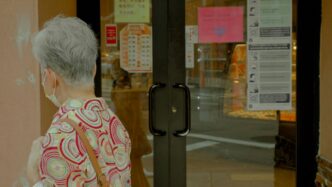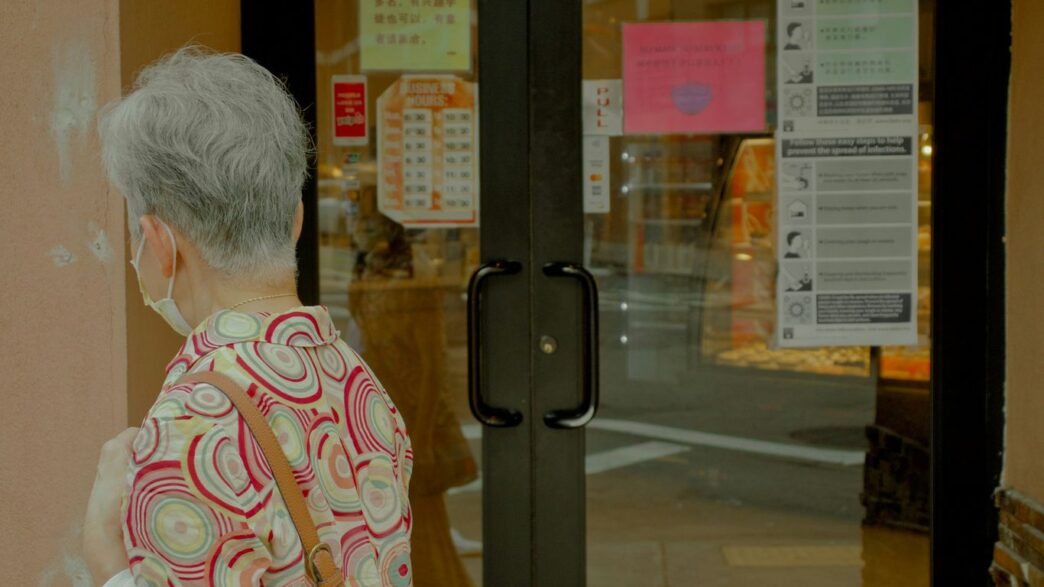As our loved ones age, keeping them safe and secure in their own homes becomes a top priority. Finding a reliable free security system for seniors in 2025 means looking for options that are easy to use, offer dependable monitoring, and provide peace of mind without breaking the bank. We’ve checked out several systems to see which ones really fit the bill for older adults, focusing on what matters most: simplicity, support, and smart features.
Key Takeaways
- ADT offers professional installation and monitoring, which can be a good fit for seniors who prefer not to handle setup themselves. They also provide discounts for AARP members.
- SimpliSafe is a strong contender, known for its user-friendly interface and affordable monthly monitoring costs, making it a good choice for those on a fixed income.
- Vivint stands out for its home automation capabilities and high-quality equipment, catering to seniors who are comfortable with technology and want advanced features.
- Ease of use is paramount; systems with simple controls, clear instructions, and accessible customer support are ideal for seniors.
- Professional monitoring is highly recommended for seniors, as it ensures a quick response during emergencies, whether security-related or medical.
1. ADT
ADT is a big name in home security, and for good reason. They’ve been around forever, like, over 150 years, and they’ve got millions of customers. When you’re looking for a system, especially for seniors, ADT really gives you options. You can totally set it up yourself if you’re feeling handy, or you can have them send someone out to do it all for you. This professional installation is a big deal for many seniors who might not want to mess with wires and sensors. They have 12 monitoring centers, which is pretty impressive, meaning they’re always ready to go if there’s an alert, whether it’s a break-in or a medical emergency. This constant backup is a huge plus for peace of mind. They even have a special monitoring option via text message, which can speed things up. Plus, they offer financing for the equipment, which is helpful if you’re on a fixed income. They also have a six-month money-back guarantee, which is nice to know you can try it out. You can even get a discount if you’re an AARP member, which is a nice little perk. They’ve also partnered with Google Nest for their cameras, which is pretty neat because you get features like recognizing visitors, and you don’t need a separate subscription for that. It’s a solid system, though it can be a bit pricier than some others, especially if you go for the full professional setup. But for that comprehensive service, many find it worth the cost. It’s a company that really seems to cover all the bases, from setup to ongoing support, making it a strong contender for anyone wanting a reliable security solution. They even have wearable emergency buttons, like a necklace or bracelet, which is a thoughtful addition for seniors who want immediate help at the press of a button. It’s good to know that advancements in detection systems are also improving safety, even if some challenges remain. pedestrian safety
2. SimpliSafe
SimpliSafe really stands out as a top choice, especially if you’re looking for something straightforward to set up yourself. They started out aiming to make security easy for renters, and that DIY spirit is still very much alive. You can get their equipment installed without needing a professional, which is a big plus for many.
The keypad is designed with physical buttons, making it super easy to use, almost like an old-school calculator. This is a nice change from complex touch screens, and it even gives you feedback, like letting you know if a window was left open when you try to arm the system. Plus, there’s a key fob that makes arming and disarming a breeze. It’s even possible to program this key fob to send out medical alerts, which is a thoughtful feature for seniors who might need that extra layer of safety.
While you can go without a monthly fee by self-monitoring, signing up for their professional monitoring really adds a lot of useful features. You can get text alerts within seconds of an alarm, and if you don’t respond, they’ll call to check in. What’s really neat is their ‘Active Guard Protection’ for cameras. If the monitoring center sees something suspicious on your camera feed, they can actually use two-way audio to talk to the person, potentially stopping trouble before it starts. This kind of proactive approach is quite impressive.
SimpliSafe offers a few different monitoring plans:
- Self-Monitoring: No monthly fee, but you won’t get professional monitoring services.
- Standard Plan: Starts around $10/month, includes basic camera support and 30 days of video history for up to 10 cameras.
- Core Plan: Around $30/month, adds features like live guard protection and AI-powered alerts.
They also have add-ons like smoke detectors and panic buttons, so you can customize the system to fit your specific needs. Starter kits generally begin at about $250, making it a pretty accessible option. If you’re interested in how AI is being used in home devices, you might find their approach to smart home security interesting, as it connects various devices to simplify daily life LG with its Smart ThinQ home hub.
It’s worth noting that while SimpliSafe works with Alexa and Google Home for arming and checking the system, you can’t disarm it using voice commands. Also, its integration with other smart-home devices isn’t as broad as some competitors. Customer service is available daily but not 24/7, which is something to consider.
3. Vivint

Vivint really stands out when it comes to a full-service security experience, and they’ve put a lot of thought into making their systems work well for seniors. They handle all the installation, which is a big plus, and they’ll walk you through how to use everything, from the main touchscreen panel to their app. Their smart home automation features are particularly impressive and can really help older adults maintain their independence at home.
When we looked at Vivint, the Smart Deterrence feature on their cameras caught our eye. It uses AI to spot potential trouble and can actively deter unwanted visitors with lights and sounds. We saw it in action, and it’s pretty effective at making people think twice. It’s a nice layer of security, especially if you live alone and worry about what’s happening outside.
However, Vivint isn’t the cheapest option. The equipment itself can add up, and you’ll need to factor in monthly monitoring fees, which are usually between $29.99 and $49.99. They also typically require a contract, often for several years, which is something to consider. While you can finance the equipment, spreading the cost over time, it’s still a significant investment. If you’re looking for a high-tech, professionally managed system and are comfortable with the costs and contract terms, Vivint is definitely worth a look. You can explore their package options to see what might fit your needs.
4. Cove Security
Cove really stands out when it comes to affordability, which is a big plus for many seniors. When we looked at their systems, the total cost for a basic setup was quite reasonable, especially when you compare it to some of the pricier options out there. It makes home security accessible without breaking the bank.
One of the neat features they have is called InstaText. Basically, if the alarm goes off, you get an instant text message. You can also add other family members or emergency contacts to this, so everyone stays in the loop. If no one responds to the text, Cove will then call the primary contact and can dispatch help pretty quickly.
When it comes to setting things up, Cove makes it pretty straightforward. The equipment comes pre-programmed, so you don’t have to mess with complicated settings. You just need to decide where you want to place the sensors and the main hub. If you do run into any snags, their customer service team is available to help guide you through it. They also mention that professional installation is an option through HelloTech, starting around $129, but honestly, most people find they don’t need it because it’s designed to be a simple DIY setup.
Cove’s equipment selection isn’t as vast as some other companies, but they focus on the essentials. You do need to pick a monitoring plan, with prices starting at $19.99 a month for the basic plan. If you’re interested in cameras, you’ll need to go for their higher-tier plan. A nice perk is that Cove cameras offer local storage, which can save you money compared to monthly cloud storage fees. However, it’s worth noting that the mobile app’s functionality is a bit limited; you can’t view live camera feeds directly through the Cove app itself. For that, you’d need a separate app. If advanced camera features are a priority, you might want to check out ADT’s advanced cameras.
Here’s a quick look at their monitoring plans:
- Basic Monitoring: Starts at $19.99/month.
- Advanced Monitoring: Includes camera support and starts at $29.99/month.
Overall, Cove offers a solid, budget-friendly option for seniors looking for reliable home protection without a lot of fuss.
5. Frontpoint
Frontpoint really tries to give you the best of both worlds. It’s a lot like the traditional systems you might be used to, but with the flexibility of a DIY setup. You get professional monitoring, which is great, but you can keep costs down by installing it yourself. I found the setup process pretty straightforward; it took me about 45 minutes to get everything running. The equipment itself is a bit chunkier than some others, but it feels solid and reliable. One really neat feature for seniors is the ability to store personal emergency information, like medical details and allergies, right in your account. If a medical alarm is triggered, this info gets passed along to responders, so they know what they’re dealing with before they even arrive.
Frontpoint also has this thing called geofencing. Basically, it can remind you to arm or disarm the system based on whether you’re close to home. If you have a senior who sometimes forgets to set the alarm when they leave, this could be a lifesaver. They can even arm it from their phone without having to go back to the house.
When it comes to monitoring plans, they list an ‘Ultimate’ plan for $49.99 a month, which is pretty high up there. But, you can actually call them and find plans starting around $14.99. Just know that the cheaper plans won’t include all the bells and whistles like home automation or video camera analysis.
Something else to note is their warranty – all Frontpoint equipment comes with a three-year warranty, which is longer than some other companies offer. They do have a bit of a confusing contract situation online, where it defaults to a three-year deal, but you can get month-to-month plans if you call them. Just be aware there’s an 80% early termination fee if you cancel after the initial 30-day trial period. If you’re curious how they compare to another popular DIY option, you can check out this Frontpoint and SimpliSafe comparison.
6. Ease of Use
When picking out a security system, especially for seniors, how simple it is to operate day-to-day really matters. You don’t want something that feels like you need a degree to arm or disarm it. Most systems offer a few ways to control them, and it’s good to know what those are.
- Key Fobs: These are often the simplest. They’re small, portable devices with dedicated buttons for arming, disarming, and even a panic button. No codes to remember, which is a big plus if memory is a concern.
- Smartphone Apps: Many systems have apps that let you control everything from your phone. While convenient, make sure the app itself isn’t overly complicated. Some apps can be a bit much, requiring you to jump between different ones for different functions, which can get confusing.
- Keypads: These are usually wall-mounted. Some have simple buttons, while others are touchscreens. For seniors, a keypad with clearly marked buttons, maybe even ones that light up, can be easier than a complex touchscreen.
We found that ADT, for example, offers a key fob that’s really straightforward. You just press a button, and you’re good to go. Their app is also pretty user-friendly, letting you manage the system without a lot of fuss. It’s important to find a system that fits your comfort level with technology, not the other way around. You want the system to work for you, not the other way around. Finding a system that’s easy to manage is key to actually using it consistently, which is what you want for reliable protection. It’s like getting your first spaceship – you want it to be intuitive, not a puzzle.
SimpliSafe is another option that many find easy to get the hang of. They focus on making their equipment and app straightforward, which is great for anyone who doesn’t want to spend a lot of time figuring things out. The goal is to have peace of mind, and a complicated system can actually add stress.
7. Professional Installation

When it comes to getting a security system set up, you’ve got a couple of main paths: do it yourself (DIY) or have it professionally installed. For many seniors, especially those who might not be super comfortable with new tech or just prefer not to deal with the hassle, professional installation is a big plus. It means someone else handles all the wiring, sensor placement, and making sure everything is connected and working right out of the box. This can really take the stress out of the process.
ADT is a prime example of a company that really emphasizes professional installation, which can be a huge relief for many. They send a technician to your home to get everything set up perfectly. While this service usually comes with a fee, it guarantees that your system is installed correctly for optimal performance. For some systems, like Vivint, professional installation is the only option, and they often include it as part of the overall package, sometimes even offering free installation if you meet certain criteria. Other companies, like SimpliSafe, offer both DIY and professional installation, giving you the choice based on your comfort level and budget. It’s worth checking if there are any installation fees associated with the professional service, as these can vary. Some providers might even waive installation costs as part of a promotion, which is definitely something to look out for when comparing different security providers.
8. Monitoring Performance
When you’re looking at security systems, especially for seniors, how well it works when you actually need it is super important. This means checking out the monitoring services. Are they always on? Are they quick to respond? Most of the systems we’ve looked at offer professional monitoring, which means there’s a real person watching over things 24/7. Some also let you do self-monitoring, where you get alerts on your phone and decide what to do. For seniors, having that professional backup can be a big relief.
Here’s a quick look at how some systems stack up:
- SimpliSafe: Offers both professional and DIY monitoring. This gives you flexibility.
- Vivint: Primarily professional monitoring, known for its quick response times.
- Cove Security: Focuses on professional monitoring, aiming for fast dispatch.
- Frontpoint: Provides a hybrid approach, allowing for both professional and self-monitoring.
The speed and effectiveness of the monitoring center are key factors in how well a system protects you. It’s not just about having sensors; it’s about what happens when those sensors go off. We’ve seen systems that promise fast response, but it’s always good to check reviews to see if they deliver. A system that reliably connects you to help when you need it is the most important feature.
9. Senior Discounts
When you’re on a fixed income, every little bit helps, right? That’s why looking into senior discounts for home security systems makes a lot of sense. It’s not always advertised upfront, so you might need to do a little digging or make a phone call to customer service to see what’s available. Some companies are pretty good about this, while others… not so much. For example, ADT is known to offer discounts to AARP members, sometimes up to 20 percent off. That’s a pretty decent chunk of change back in your pocket.
It’s worth checking with each provider you’re considering. Here’s a quick rundown of what you might find:
- ADT: Often provides discounts for AARP members.
- SimpliSafe: While they don’t always advertise specific senior discounts, their generally affordable pricing can be a big plus.
- Vivint: Keep an eye out for any special promotions they might run, though specific senior discounts aren’t always highlighted.
Don’t be shy about asking! You might be surprised at what you can save. It’s a good idea to have a list of potential providers and then call each one to inquire about any senior-specific deals or general promotions that could lower the overall cost of equipment or monthly monitoring fees.
10. Equipment Range
When you’re looking at security systems, the kind of gear they offer really matters. You want stuff that fits your home and your needs, right? Some companies have a pretty basic setup, maybe just a few sensors and a camera. Others, though, really go all out with a wide variety of devices.
Think about what you might need. Do you want door and window sensors? Motion detectors? Maybe a smoke detector or a carbon monoxide sensor? Some systems even have flood sensors or glass break detectors. It’s good to see if a company has all the pieces you might want to build a complete safety net for your home. For instance, SimpliSafe offers a good range of wireless equipment that’s easy to set up, and they even have features like active guard protection where agents can use camera feeds to talk to intruders. That’s pretty neat.
Here’s a quick look at what some popular systems offer:
- SimpliSafe: Wide variety of sensors (entry, motion, glass break), cameras (indoor, outdoor, doorbell), keypads, and even a panic button. They also have environmental sensors like smoke and CO detectors.
- Vivint: Offers a broad selection of smart home devices alongside security, including smart locks, thermostats, garage door openers, and lighting control, all integrated into their security system. You can even control things like your garage door remotely, similar to the OmGate gadget mentioned elsewhere.
- Cove Security: Provides standard security sensors, cameras, and environmental detectors, focusing on a straightforward and affordable package.
- ADT: Known for a comprehensive range of equipment, including professional-grade sensors, cameras, and smart home integration options.
The breadth of equipment available can significantly impact how well a system protects your home and how convenient it is to use. It’s not just about having a basic alarm; it’s about having the right tools for the job.
Putting It All Together: Finding Peace of Mind
So, we’ve looked at a few different ways to keep seniors safe at home without breaking the bank. It’s clear that systems like ADT, SimpliSafe, and Vivint have options that really focus on making things simple and reliable for older adults. Whether it’s easy-to-use keypads, professional help when needed, or even discounts for seniors, the goal is to give everyone a sense of security. Remember, the best system is the one that fits your specific needs and comfort level with technology. Taking the time to compare these options can really make a difference in feeling safe and sound.
Frequently Asked Questions
What makes a security system good for seniors?
Good security systems for seniors are easy to use, like having simple buttons or voice commands. They should also be easy to set up, either by yourself or with professional help. Having a service that quickly responds to alarms and can help with medical needs is also important. Plus, discounts can make them more affordable.
Do I need professional installation for a senior security system?
Not always! Many systems are designed for easy DIY setup, meaning you can install them yourself without needing special tools. However, professional installation is a great option if you want to be sure everything is set up perfectly, and some companies offer this service.
What is professional monitoring?
Professional monitoring means a security company has a team that watches for alarm signals 24/7. If an alarm goes off, they can contact you, the authorities, or even medical help, depending on the situation. It’s a great way to get quick assistance when you need it.
Are there discounts available for seniors on security systems?
Yes, many companies offer special deals for seniors. These can include discounts on equipment or monthly monitoring fees. It’s always a good idea to ask about any available senior discounts when you’re looking into a system.
What kind of equipment should I look for?
Besides basic sensors for doors and windows, consider devices like motion detectors. For seniors with hearing issues, sound detectors or glass break sensors can be very helpful. Cameras can also provide extra peace of mind.
How important is ease of use for senior security systems?
Ease of use is very important. Seniors might not be comfortable with complex technology. Systems with simple keypads, clear instructions, or even voice control are much easier to manage. Being able to check on things through a simple app or website is also a plus.














